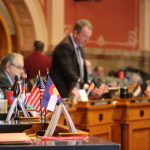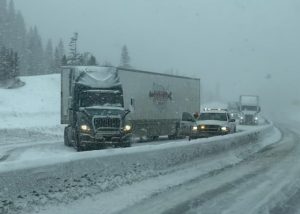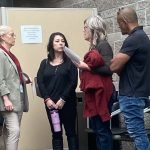Colorado’s 2025 legislative session has ended. Here’s how these Western Slope lawmakers felt about it
Lawmakers succeeded in passing a slew of measures with rural Colorado in mind. But there were also some stinging defeats.
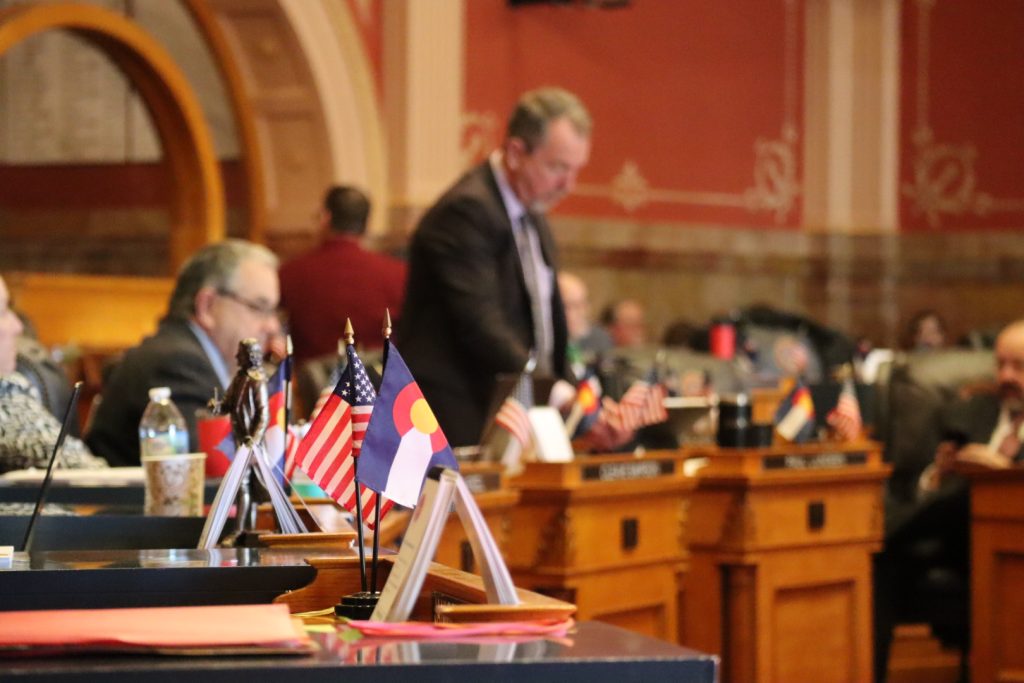
Robert Tann/Vail Daily
Another year, another legislative session.
The 2025 lawmaking term ended on Wednesday, May 7, capping 120 days of bill crafting, fiery debates and long hours. Here’s what five Western Slope lawmakers have to say about it.
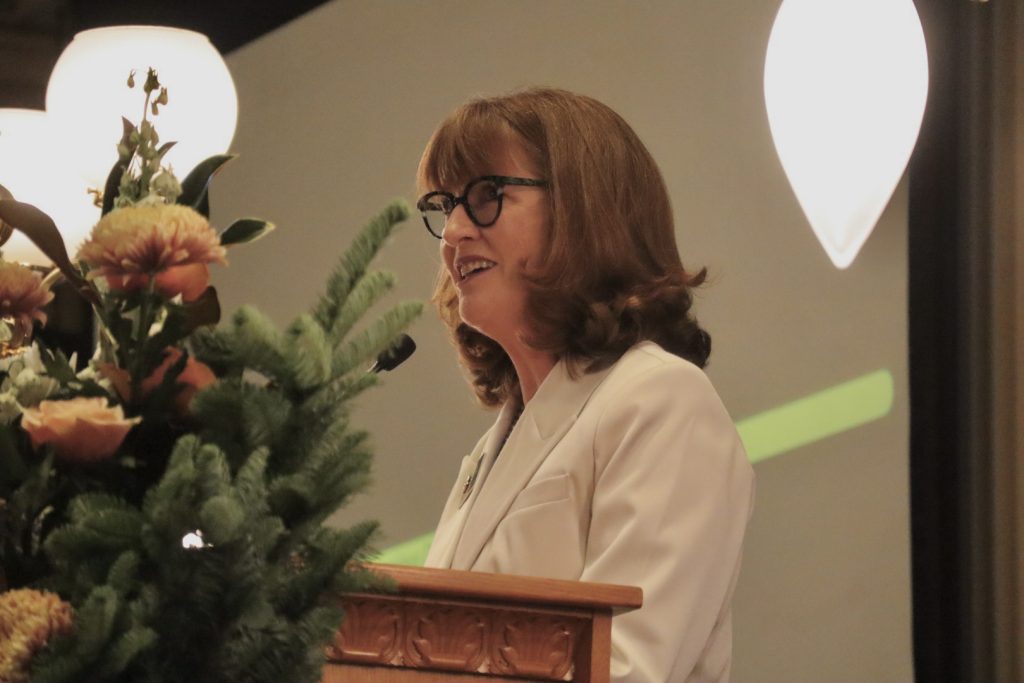
House Speaker Julie McCluskie, D-Dillon: McCluskie wrapped up her third session as House speaker, making her among the few legislators who’ve served as leader of the chamber for more than one term.
Through the role, she said she’s been able to further bring to attention the needs and issues of western Colorado. Next year will be her last in the House as she is term-limited and cannot run again as a representative.
A longtime advocate for public education and a former communications director for the Summit School District, she led the charge to pass this year’s K-12 funding package, known as the School Finance Act.

Support Local Journalism
The measure ensures that the vast majority of school districts see a boost in funding under the new school finance formula that lawmakers adopted last year, something McCluskie said will be especially critical for smaller, rural districts that are struggling to keep up with costs.
She also highlighted a measure she carried that will allow the state to collect more tax revenue from sports betting that can go toward water projects, adding that water security is “a top priority not only for the Western Slope (but) for the state.”
One of her biggest disappointments, however, was the defeat of House Bill 1302. It sought to stabilize the homeowners insurance market by creating a reinsurance fund and grant program to drive down insurers’ risk around wildfires and hail. Those would’ve been funded through a 1% fee on homeowners’ premiums, which ultimately proved to be the bill’s undoing.
Lawmakers did approve another measure, House Bill 1182, that mandates more transparency from insurers when assessing a home’s wildfire risk. The goal is to ensure homeowners can see lower premiums when doing mitigation work.
“I hear from too many of my constituents that property insurance is not affordable, or they simply can’t get it,” McCluskie said. “I think the two bills together … would’ve been a great package for us, so I’ll bring the other one next year. We’ll get it done.”
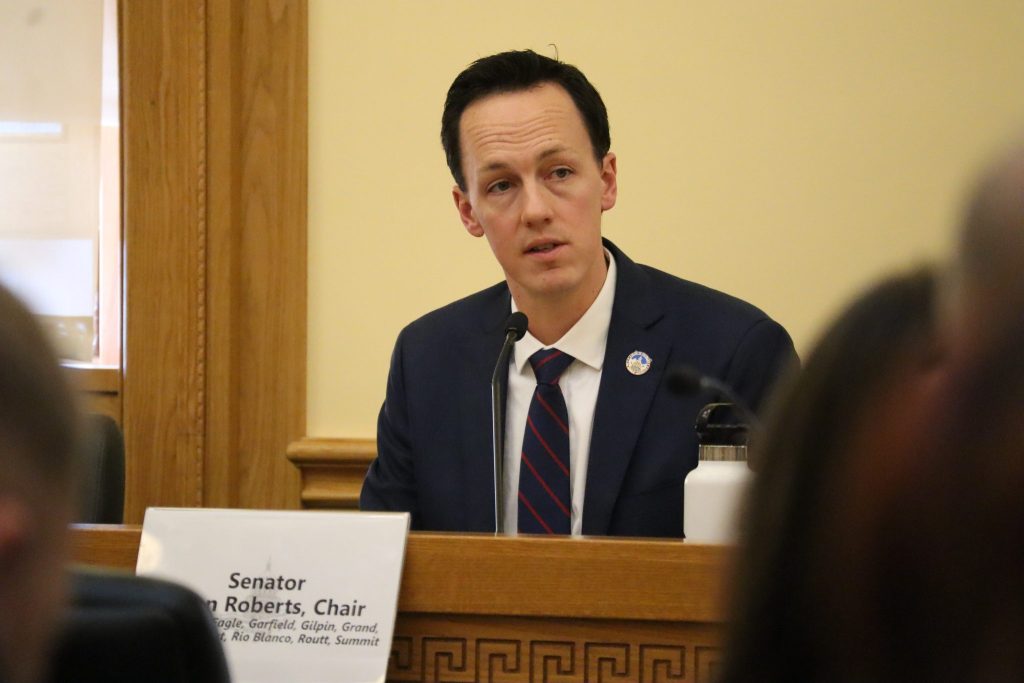
Sen. Dylan Roberts, D-Frisco: Roberts, a second-term senator who previously served in the House, said his main goals this session revolved around housing, water and public safety.
On housing, he sponsored a bill to direct up to $50 million in state treasury bonds for developers of for-sale affordable homes, something he said could create at least 200 homeownership opportunities. He also worked on a measure aimed at boosting the construction of condominiums by reducing the risk of lawsuits against developers.
He championed several water-related bills, including a measure to study and find solutions to water funding challenges and collect more tax revenue from sports betting that can go toward water projects. He also sponsored legislation to create a tire chain assistance program for truckers on Interstate 70 and other mountain roads.
Still, he said 2025 was one of the more complicated sessions due to the state’s $1.2 billion budget shortfall. The situation made funding new and existing programs a challenge, forcing lawmakers to hunt for money elsewhere.
A bill Roberts sponsored to create a new funding pool for road safety improvements for pedestrians, cyclists and wildlife — paid for through a fee on car insurance — was killed. He called the bill’s defeat “frustrating” but hopes to bring that effort back in some form next year.
“That is something that is incredibly important,” he said, “making sure that our roads are safe and reducing wildlife-vehicle interactions and vehicle-pedestrian interactions.”
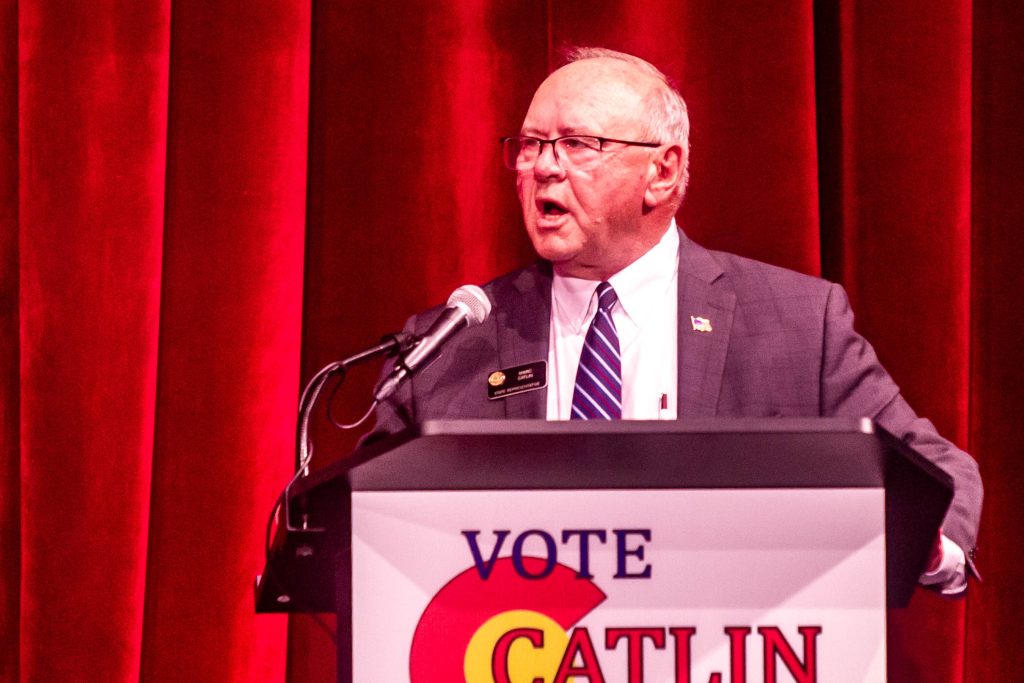
Sen. Marc Catlin, R-Montrose: This session marked the first for Catlin in the Senate after he served three terms in the House.
Part of his adjustment to the upper chamber included getting to know his new district, which, along with the more rural communities of Montrose and Delta, includes the resort areas of Aspen and Glenwood Springs.
As a result, the district is as diverse geographically as it is politically and is among the more purple of those on the Western Slope. Catlin, a Republican, said he’s strove to focus on finding practical solutions to problems in his district that transcend politics.
“As their new senator, the best way for me to say, ‘Hey, I’m with you,’ is to do things that they can see immediately,” he said.
Examples include the chain assistance bill and a measure to address frivolous 911 calls that obstruct operations. He also sponsored a bill to hide from public view the personal information of ranchers who seek compensation for wolf attacks. All three measures were co-sponsored alongside Roberts.
Catlin said he wants to monitor how those measures are implemented over the interim period and see if more changes need to be made. He also plans to keep learning about his district and hear what ideas residents and community leaders have for the next session, all while focusing on issues that go beyond partisan politics.
“Grocery store conversations, parking lot conversations, parts stores and restaurants are where my people talk,” he said. “I’ve done more politicking at the grocery store than anywhere else. … I think I’m much better in those settings than I am in a gymnasium full of people that are half mad and half happy.”
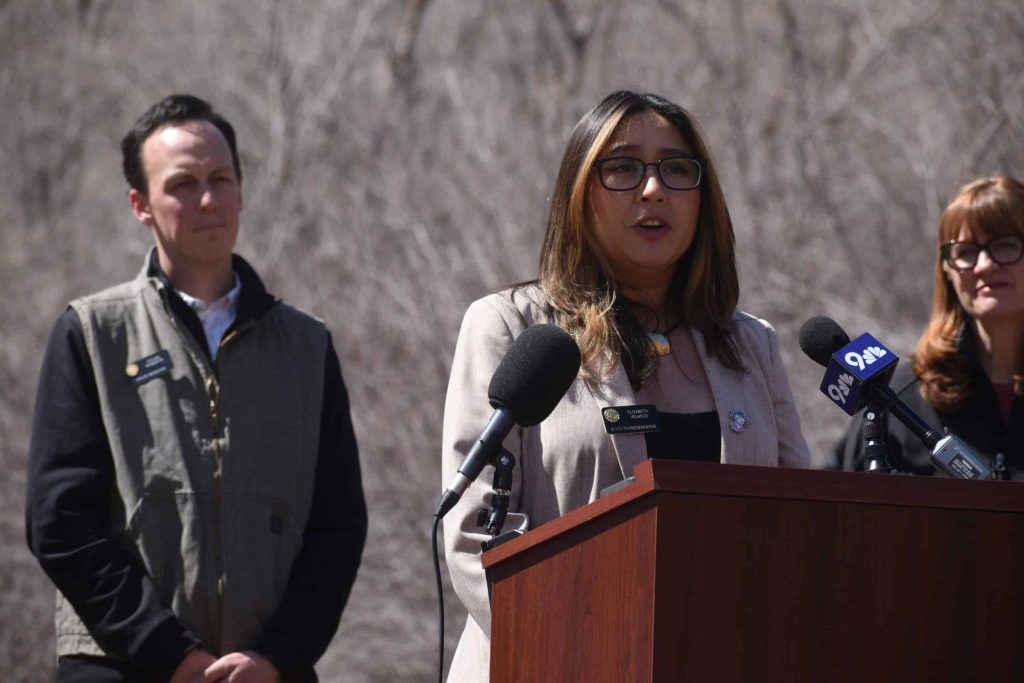
Rep. Elizabeth Velasco, D-Glenwood Springs: The state’s first Mexican-born legislator, Velasco said one of her main priorities this session was protecting immigrant communities.
She sponsored a bill that vastly expands the existing safety nets in place for undocumented people in Colorado. The measure further restricts how much local governments and spaces like schools, hospitals and child care centers can interact with federal immigration officials.
She said the legislation is about providing the same constitutional rights to all Colorado residents, regardless of citizenship status. The much-anticipated measure wasn’t introduced until just over a month before the end of the session, with lawmakers embroiled in conversations with the governor’s office and legal scholars.
“I’m definitely very proud to have worked on that legislation and made it all the way through, even when it felt really hard,” she said.
Several other high-priority bills for Velasco didn’t make it across the finish line. That includes a proposal that would have provided millions in interest-free loans to firefighters and local fire districts and another to establish protections for outdoor workers facing extreme temperatures.
She plans to revisit those measures next session. She said investing in fire mitigation, environmental justice and workers’ rights takes on new urgency under the Trump administration, which has moved to pare back agencies like the U.S. Forest Service and the Occupational Safety and Health Administration, commonly referred to as OSHA.
“It just feels very, very important for us to stand up for our most vulnerable and also for rural communities,” she said. “I do feel like (this session) was an opportunity to have a lot of hard conversations and to create policies that support everyone.”
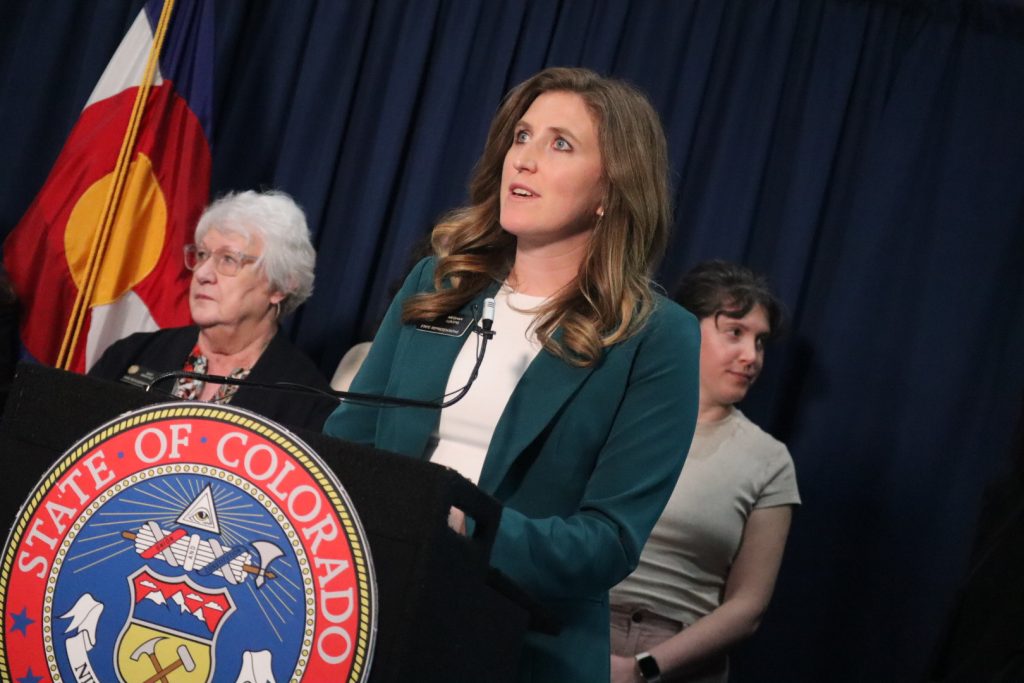
Rep. Meghan Lukens, D-Steamboat Springs: A current high school civics teacher in Steamboat Springs, Lukens capped her third legislative session as chair of the House Education Committee.
She sponsored several education-related bills that ultimately passed, including a measure requiring school districts to adopt policies on students’ cell phone use and a bill that creates a state fund to help teachers afford down payments on homes.
Perhaps the most pivotal legislation for public education is the School Finance Act, which she also sponsored alongside McCluskie.
The act increases per-pupil funding for districts by more than $195 for the 2025-26 school year and increases total K-12 spending by about $250 million. While it won’t be quite as much as schools had initially expected to receive under last year’s finance formula, Lukens said she was proud to protect public education from deep cuts amid a tight budget year.
One of the biggest wins, she said, was the elimination of the budget stabilization factor, a Great Recession-era mechanism that led to chronic underfunding of schools.
“We know that we have been balancing the state budget on the backs of education for over a decade,” she said. “We were determined to ensure that we did not bring back the budget stabilization factor but also continue to increase investments in K-12 education.”
She said she plans to work on at least two measures over the interim that did not pass this session, with the hope of bringing the proposals back next year. One would expand the Department of Natural Resources’ role in supporting trail expansion and development, while the other is the road and wildlife safety measure, which she sponsored with Roberts.


